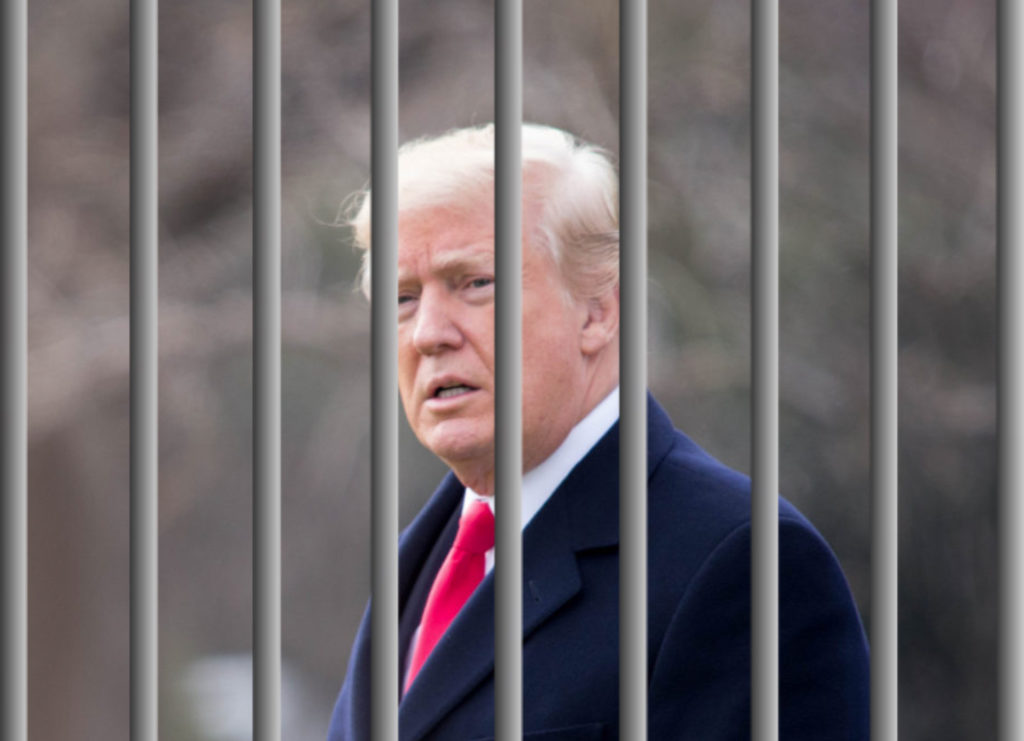When we can really expect the DOJ to criminally indict Donald Trump

With each new January 6th public hearing, the odds of Donald Trump being indicted by the DOJ go up. That’s not only because the DOJ has said it’s watching all the evidence being presented in these hearings, but also because the DOJ has been doing its own criminal investigation into all of this.
The talking heads almost never acknowledge it, but multiple major news outlets have confirmed that the DOJ has had a January 6th grand jury targeting Trump world for at least the past five months. For that matter, when the DOJ asked (and yesterday received) closed door testimony transcripts from the January 6th Committee, it was because the DOJ wants to use that testimony to help get these people indicted. If these witnesses said one thing to the DOJ and another to Congress, that nails them for lying to one or the other, which is a crime that the DOJ can then use as leverage for pushing them to flip on each other.
All of the above is known, and at this point frankly obvious. At this point it would be difficult to imagine the DOJ not criminally indicting Donald Trump. But what’s far from known or obvious is when the DOJ might indict Trump. It’s a much trickier question, and based on how these kinds of criminal probes tend to go, it largely comes down to one essential question.
It’s not a simple matter to get a criminal conviction against a boss who instructs his underlings to commit crimes. As Michael Cohen knows first hand and has repeatedly explained, Trump likes to give such instructions in code words, similar to how mob bosses do it. When the DOJ was finally able to take down the original “Teflon Don,” mob boss John Gotti, it was by getting Gotti’s top henchman Sammy Gravano, to testify to the trial jury that Gotti really was instructing him to commit the crimes that Gravano committed.
To that end, in order to secure a trial conviction against Donald Trump, the DOJ is likely going to need to cooperation of at least one of Trump’s top underlings. It’s one thing for these public hearings to prove Trump obviously guilty in the court of public opinion. It’s a whole other thing to convince a trial jury that Trump is guilty beyond a reasonable doubt. In reality, the DOJ is going to want the cooperation of someone like Meadows, Eastman, Clark, Giuliani, or Bannon.
The good news is that all of those individuals, and many others in Trump world, appear to currently be under DOJ investigation for January 6th and/or other crimes. That’s not a coincidence. The DOJ always tries to flip these types of top underlings against a crime boss.
The thing is, with the goal being to get one or more of Trump’s January 6th henchmen to flip on him, there’s not much point in racing to indict them. In such case they’ll just opt to go to trial, mistakenly believing they can get off – and it’ll take a year or more for them to be convicted and then realize they need to cut a deal.
For the DOJ, the quicker path to victory is to just keep digging up more and more dirt on these Trump henchmen, and keep privately letting them know just how thoroughly nailed they are, until one of them realizes he’s absolutely going to be convicted at trial, and decides to cut a deal now instead of dragging it out to trial. And once one of Trump’s henchmen flips, others probably will as well, figuring the first guy is going to give them up anyway.
So when is the DOJ going to criminally indict Donald Trump? It comes down to if and when his henchmen start cutting cooperation deals against him – and we don’t know that answer. There is some circumstantial evidence to suggest that Meadows may have already flipped, but there’s nothing to confirm it. Giuliani and Sidney Powell have publicly claimed at various points that they are cooperating, but as big of loons as they both are, we can’t take their word for it.
The bottom line is that in spite of the metric ton of evidence of Donald Trump’s guilt that’s emerging from these public hearings, the DOJ will not indict Trump the day after they conclude, or the week after that. If the DOJ indicted Trump now, without cooperating witnesses in place, it would just put Trump on track for having strong odds of acquittal at trial, which would only serve to embolden him.
If you want to know when the DOJ will indict Trump, ask yourself when you think his henchmen will begin flipping on him, or if you think any of them have already done so. That’s the key to understanding all of this. It’s how the DOJ successfully takes down crime bosses like Trump, when it does successfully take them down.
